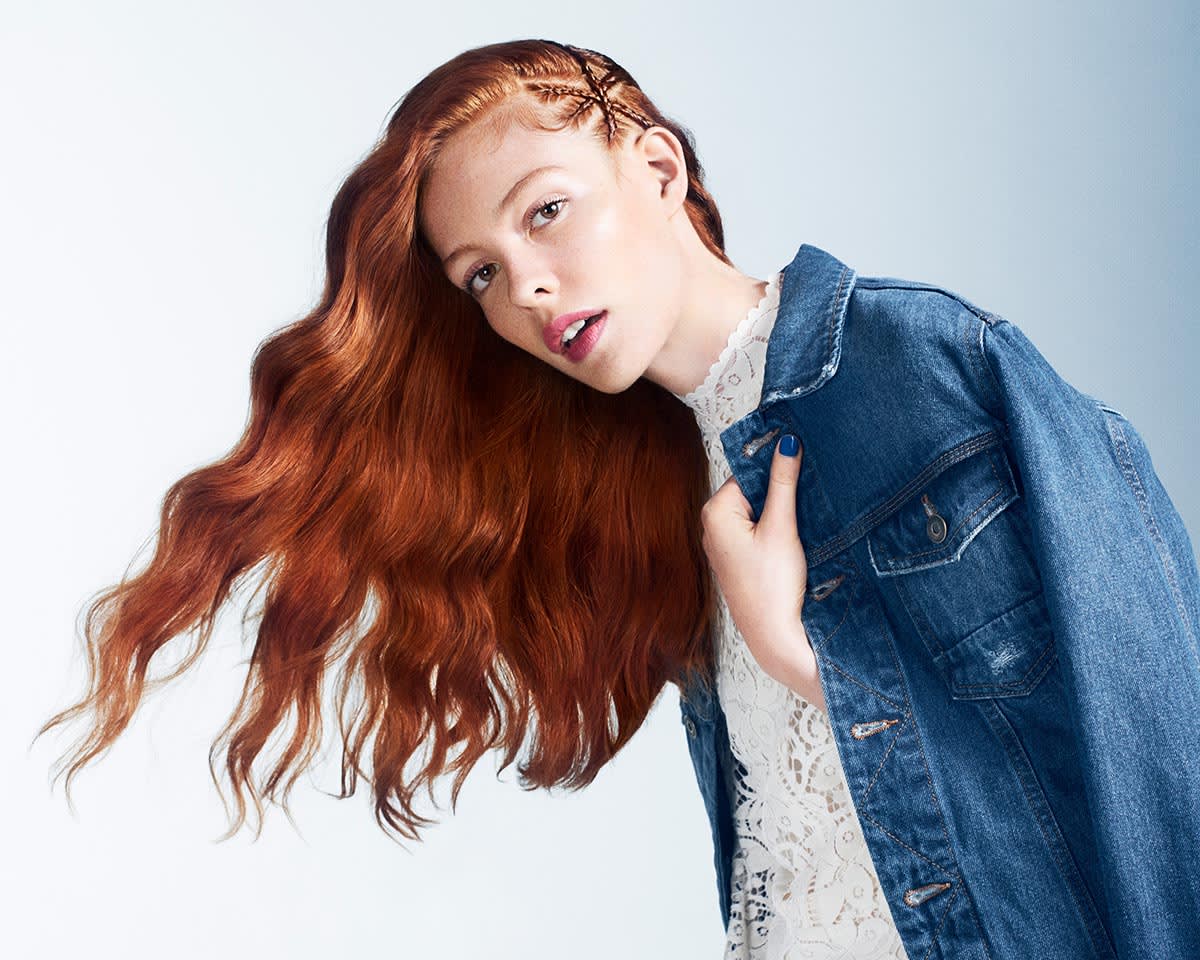Can Styling Your Hair Cause Dandruff?
** Learn how styling your hair affects the scalp and whether it contributes to triggering dandruff. **

1. What are the effects of styling on your hair?
2. Can styling products cause dandruff?
3. Can you use styling products if you have dandruff?
4. Which hair products to use (and avoid) if you have dandruff?
5. Tips to prevent dandruff flare-ups caused by styling
While shampoos and conditioners are a staple, your hair care arsenal will be incomplete without styling products and your trusted appliances. Hair sprays, mists, serums, gels… are a great way of turning a bad hair day around. These styling products give you gorgeous, manageable hair. However, the trouble brews when you spot flakes on your shoulders, scalp, and hair strands. But does styling your hair cause dandruff?
Let’s find out.
What are the effects of styling on your hair?
Styling your hair makes your hair look great. However, regular use can damage your hair and scalp, irrespective of how beautiful it looks for the short term. Frequently heat styling your hair and using other hair products can cause these problems:
• Scalp irritation
• Dryness of the scalp
• Damaged, brittle hair
• Product build-up
Can styling products cause dandruff?
Hair products such as hair waxes, sprays, gels, and dry shampoos constitute an important part of your hair styling regimen. They make your hair look better and more manageable. Using styling products or heat styling your hair does not directly cause dandruff. However, prolonged use of these hair products can damage your scalp and cause irritation. Plus, if you have a sensitive scalp, using the wrong hair product will irritate it and aggravate the condition.
Though it’s not common to get dandruff from styling, product build-up is a problem faced by many who use styling products.
Can you use styling products if you have dandruff?
You don’t get dandruff from hair products. However, they do cause scalp irritation or dryness that can trigger dandruff. So, do you have to give up on styling your hair forever? No! If you are in the middle of a dandruff flare-up, it is advisable to check the hair products you have been using. This is just to ensure that your scalp irritation isn’t triggered by the products you use.
Here's what you should know about using hair products when you are dealing with dandruff.
• It seems like a good idea to cut back the amount of styling product you use in one go. It will prevent flare-ups and ensure that you don’t aggravate the current condition.
• The general hair care rule you need to follow while using hair products if you have dandruff, is to wash your hair the next day after using these styling products. This ensures that there’s no scope for product build-up to disrupt your scalp health.
Which hair products to use (and avoid) if you have dandruff?
Hair products like gels, mousse, waxes, and hairsprays can give you beautiful and manageable hair. However, if these products remain in your hair and aren’t rinsed properly, they cause build-up over time, and trap dirt, oil, and other substances close to your scalp. These elements break down over time and form new substances that can irritate your scalp and make it itchy and flaky.
• Use an anti-dandruff shampoo: To prevent the product build-up and other impurities from affecting your scalp, you need to give your hair and scalp a deep cleanse. Try Head & Shoulders Apple Fresh Shampoo for flake-free hair. This green apple shampoo is pH-balanced and perfect for coloured or chemically-treated hair. It gently cleanses your scalp and hair, and gives you up to 100% dandruff protection. This dandruff shampoo gives you clean and fresh hair that smells of lush green apples.
For balanced nourishment, you can try Head & Shoulders Clean & Balanced Shampoo that gives you 7 major benefits: fights dry scalp, calms itchy scalp, relieves irritation, great scent, reduces redness, controls flaky scalp, and leaves your hair looking great. This shampoo gives you soft, manageable, and great hair with up to 100% dandruff protection.
• Pair it with an anti-dandruff conditioner: Dandruff shampoos are great, but if you pair it with your regular conditioner, it reduces the dandruff-fighting power of these shampoos, by washing away the active ingredient in dandruff shampoos that fight dandruff and give you a clean and healthy scalp. So, pair your anti-dandruff shampoo with an anti-dandruff conditioner. You can use the Head & Shoulders Apple Fresh Conditioner for coloured or chemically-treated hair and keep your hair flake-free. You can also try Head & Shoulders Clean & Balanced Conditioner that locks in dandruff-fighting power and gives you clean, manageable hair.
• Give the dry shampoo a break: Dry shampoo has become popular as it helps to keep your hair clean on days when you don’t wash it. It readily absorbs the oil and grease on your scalp and gives your hair a fresh appearance. However, it is not a substitute for your regular shampoo and conditioner. When you shampoo and condition your hair, you are cleaning your scalp and tresses and getting rid of dust, dirt, and product build-up. This ensures that your scalp and hair remain clean and there is nothing left behind that can trigger a scalp condition. Dry shampoo, on the other hand, only makes your hair “appear” clean, by getting rid of the oil and gunk but doesn’t exactly clean your scalp completely. This doesn’t mean that you have to stop using dry shampoo altogether; just don’t substitute it for your regular shampoo + conditioner.
Tips to prevent dandruff flare-ups caused by styling
If you have dandruff, you need to be more careful while using styling products and appliances. You have to take care of your scalp and hair so that you don’t have to deal with dandruff flare-ups. Here’s what you can do:
• Don’t use heat styling appliances every day. Instead, let your hair dry naturally.
• Don’t use a flat-iron or a curling rod when your hair is wet. Wait for it to dry completely.
• Use a soft brush when you style your hair.
• Consider using a heat protectant spray before heat styling your hair.
Any styling process that causes scalp irritation can trigger dandruff. So, be gentle on your scalp and be mindful of which hair products you use. If you continue to experience dandruff or scalp irritation, it’s advisable that you visit a dermatologist right away.
(*visible flakes, with regular use)

